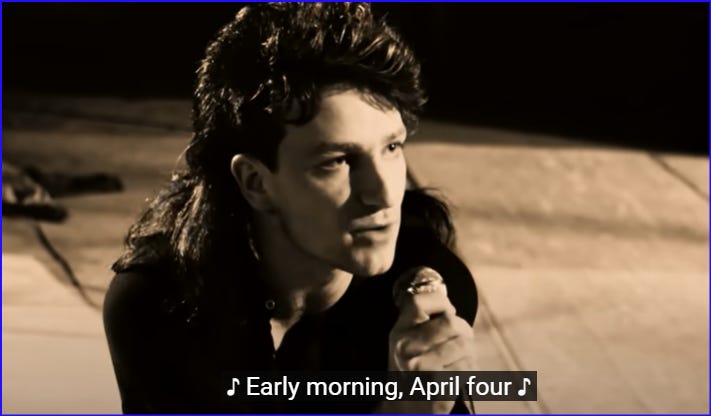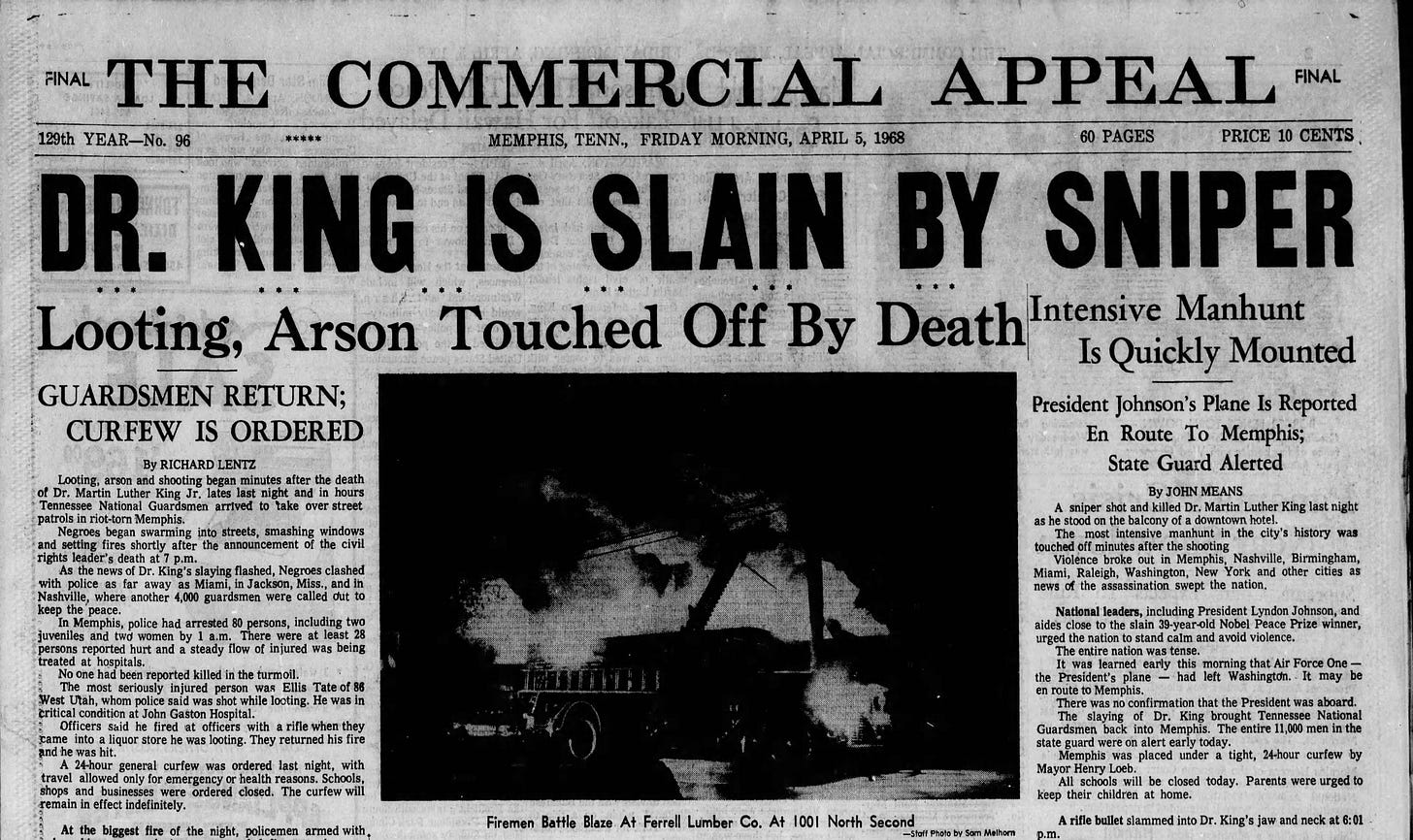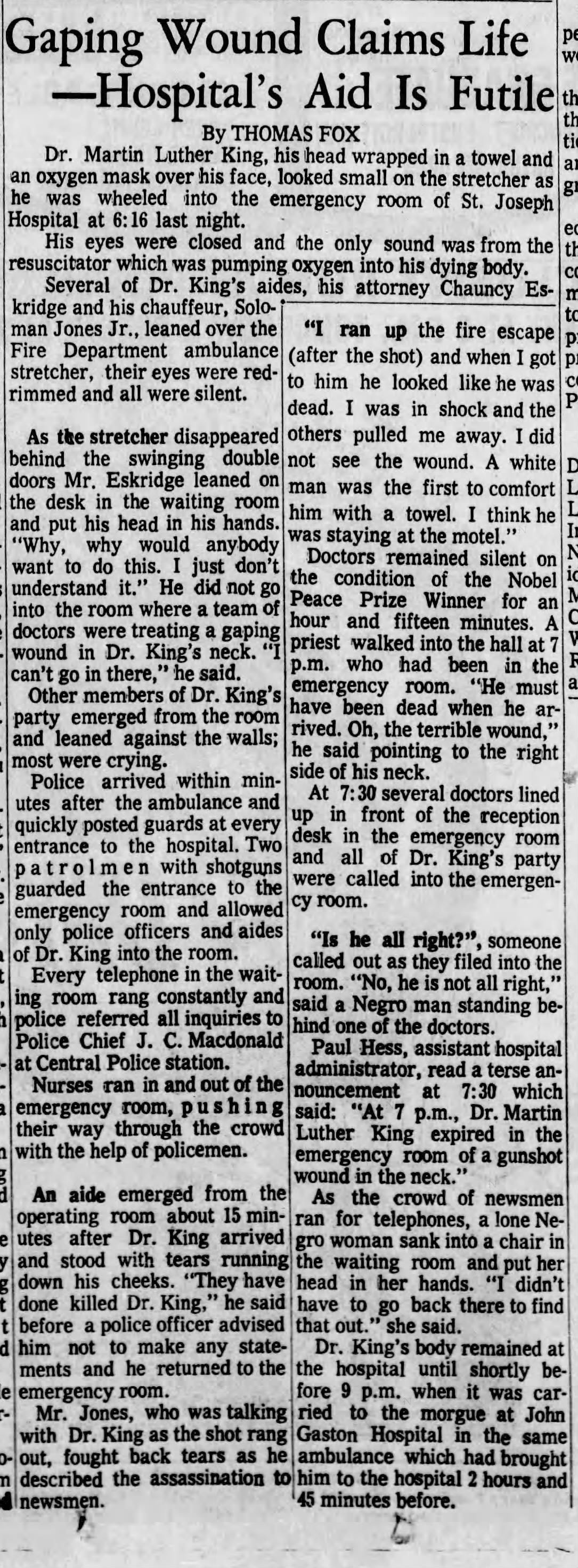One man, he resist
57 years after Martin Luther King Jr.'s death, a humbling personal reminder of the importance of thinking for ourselves
How do you know your ABCs?
If you’re like me, it’s from the Alphabet Song, where the lyrics walk you through the 26 letters from A to Z and ends with “next time won’t you sing with me?”
Are you playing the song in your head now? I can play it in French, too, capped by “double-vay, eeks, ee-grek, zed.”
The point is: Backed by instruments and bolstered by repetition, songs are sticky on the brain. Though I might struggle to recall the title of a book I’ve been reading the past few weeks, I can instantly summon the words that come next in a song I haven’t heard in decades.
That’s why for 40 years, thanks to the rock band U2, I thought Martin Luther King Jr. was assassinated on the morning of April 4, 1968. Check it out, right there in the subtitled lyrics of the official video for “Pride (In the Name of Love).”
When the song came out in 1984, it quickly became a fixture in the Soundtrack of My Life, High School Era. It was further entrenched when I saw U2 in concert here in Chicago, first in 1987 and again in 2011. Both times the song was among the few that sparked the most emotional, heartfelt reaction from fans.
At any point over those 40 years, if you’d quizzed me on the time of day that MLK was killed, I’d have been all-in on morning. This includes the span after December 2019, when Bridgett and I visited the National Civil Rights Museum at the Lorraine Motel in Memphis.
Even then, in the place where King’s life was violently ended, I didn’t see anything—or pay close enough attention, anyway—to move me off this early morning belief.
So you can imagine my perplexity last year as I read Jonathan Eig’s Pulitzer Prize-winning King: A Life and he chronicled King’s last day on Earth. By the point that King is getting ready to go out to dinner about 6 p.m.—moments before he’s shot on the balcony outside his room, I was absolutely flummoxed.
My longstanding, U2-generated paradigm had crumbled to dust.
In the grand scheme, certainly, this might seem little more than oddball trivia musings. Did the band alter the time of day because “morning” flowed melodically better than “evening”? Or was it an innocent mistake?
But I take it as a humbling reminder that we shouldn’t take anything at face value, especially something with as much inherent creative license as a song lyric. We must do our own thinking1 and hold up to scrutiny what we believe to be established fact.
And, as Bono sang at another point in the song, we do well to take our cue from this line: “One man, he resist.”2 Those words resonate especially on this day, at the end of yet another chaotic and calamitous week in America.
“No, he is not all right.”
Below is the front page of the April 5, 1968 edition of The Commercial Appeal, the dominant Memphis morning newspaper of the time. Further below is a gripping on-the-scene account of futile efforts to save King’s life at St. Joseph Hospital.
The longtime journalist in me marvels at the extraordinary frontlines access that the reporter, Thomas Fox, secured at the hospital.
Kudos to you, Cory Booker. Twenty-five hours and four minutes!








Thank you for sharing that incredible piece of reporting.
Yeah... This album was where I got off the U2 train, and Bono's "creative license" with the time of MLK's assassination was part of why. Incredible newspaper clips, though — thank you for digging those up!